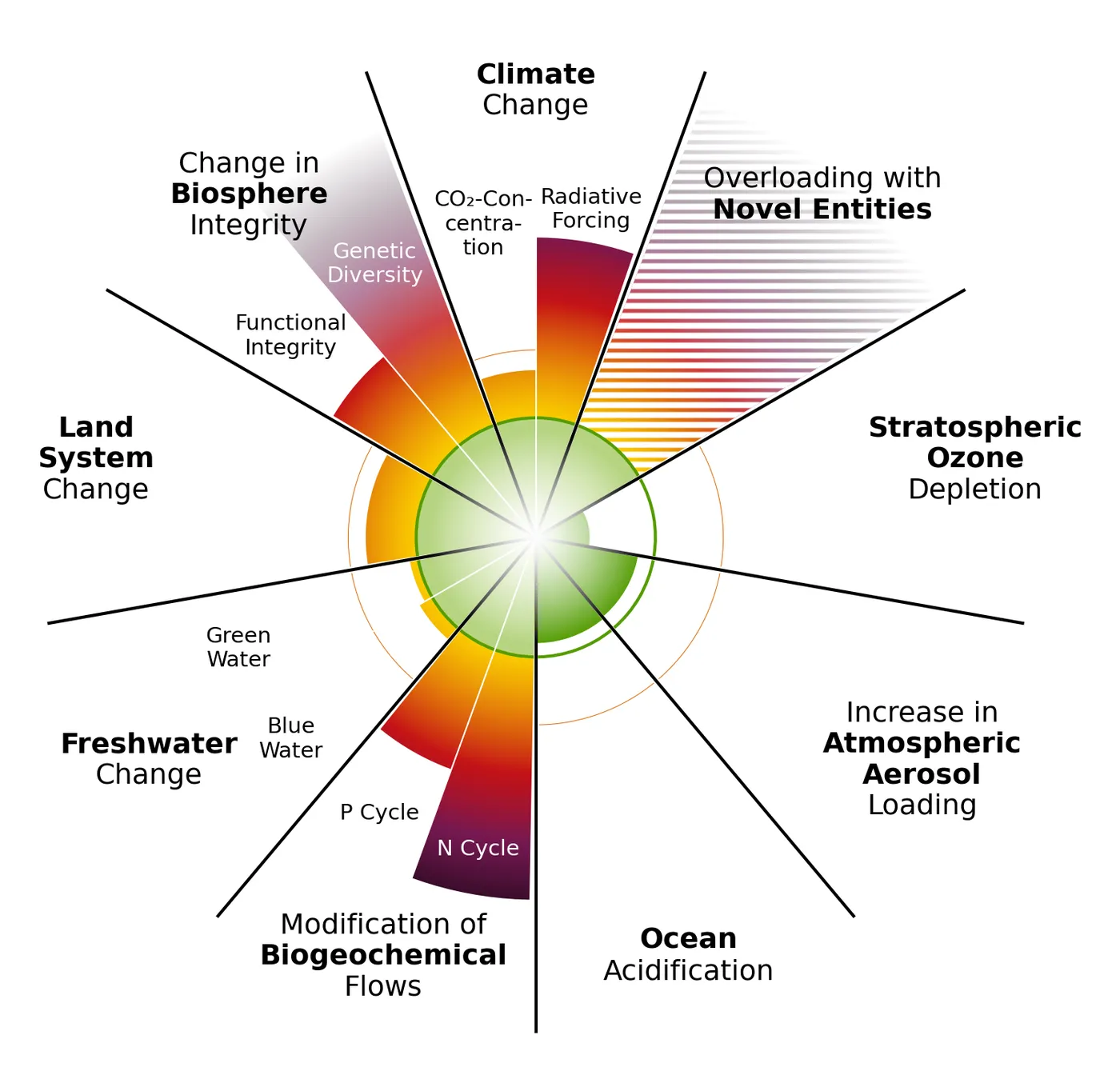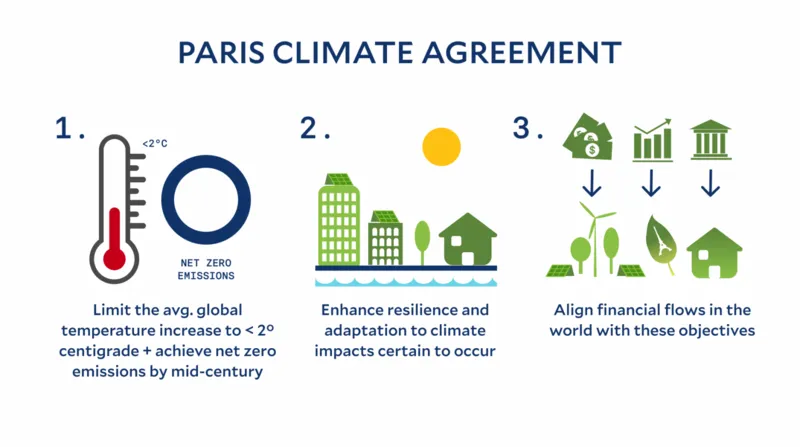Two recent Climate Science articles
Patrick Medlicott - 17th March 2025
This week I will comment on two articles. The first is an article from Science Advances by Richardson et al. 9 from 13 September 2023. This is a research article with the title “Earth beyond six of nine planetary boundaries”. This article is a collaboration between multiple climate scientists, including those from the renowned Potsdam Institute (Rockstrom et al).
The nine planetary boundaries are from a 2009 paper by Rockstrom and associates from the Potsdam institute. They are:
- Climate change
- Ocean Acidification
- Stratospheric ozone depletion
- Biogeochemical flows (Nitrogen and Phosphorus cycles)
- Global freshwater use
- Land system changes
- Rate of Biodiversity loss
- Atmospheric Aerosol loading
- Chemical pollution
I am becoming modern and decided to summarise the article using AI. I reviewed the summary from AI and I was unable to do better myself!
The research article “Earth beyond six of nine planetary boundaries” by Katherine Richardson and colleagues updates the planetary boundary’s framework, revealing that six of the nine boundaries are currently transgressed. These boundaries include climate change, biosphere integrity (genetic diversity and functional integrity), land system change, biogeochemical flows (nitrogen and phosphorus cycles), and novel entities. Ocean acidification is close to being breached, while aerosol loading exceeds the boundary regionally. Stratospheric ozone levels have slightly recovered. (Montreal agreement made in a time when nations were still collaborating).
The planetary boundaries framework identifies critical earth system processes that maintain the planets stability and resilience. The framework aims to keep earth within a” Holocene-like” state, characterised by stable environmental conditions over the past roughly 10,000 years. Human activities have forced earth outside the safe operating space, suggesting we are now in the Anthropocene epoch.
The study emphasises the need to consider anthropogenic impacts on earth system processes in a systemic context, as these impacts interact non-linearly and can lead to significant changes in global environmental conditions. The frameworks update includes new control variables and boundary levels based on recent scientific advances, highlighting the importance of integrated Earth system modelling to project future trajectories and guide sustainable development.
The findings include:
- Climate change: Atmospheric CO2 concentration and radioactive forcing are well beyond safe levels.
- Biosphere integrity: the extinction rate and human appropriation of net primary production exceed safe limits.
- Land system change: significant deforestation has occurred particularly in tropical forest.
- Biogeochemical flows: excessive nitrogen and phosphorus input from agriculture disrupt global cycles.
- Freshwater change: human induced alterations in blue and green water flows are substantial.
- Novel entities: the release of synthetic chemicals without adequate safety testing is a major concern.
This study calls for urgent action in respect to planetary boundaries and to maintain earth system stability emphasising the interconnectedness of climate, land-use, and biosphere processes.

The second article which I believe should be considered is from the United Kingdom Institute of Actuaries (actuaries.org.uk). I had to look up the definition of an actuary. An actuary is a business professional who analyses the financial consequences of risks. Actuaries are the backbone of insurance and financial security industries. They are not climate scientists, and often have a background in mathematics, statistics and business economics. They therefore cannot be “biased scientists who want to increase their research grants” as some of the science deniers say.
The article is entitled “planetary solvency - finding our balance with nature”. This addresses the urgent need for global risk management to ensure human prosperity. It highlights the critical dependence of society and the economy on the earth system, which provides essential services like food, water, energy and raw materials. The document warns that climate change and nature loss, driven by human activity, threaten the stability of the earth system, with severe impact already being felt through unprecedented fires, floods, heatwaves, storms, and droughts.
They note that the earth’s systems stability is crucial for societal development, well-being, and economic health. Climate change impacts are materialising at lower temperatures than estimated, posing severe risks to human security.
The Paris agreement goals were not informed by realistic risk assessments, implicitly accepting high risks of crossing tipping points. Current global risk management practices are inadequate, often underestimating the severity of climate and nature driven risks.

The article recommends to policymakers that they:
- Implement planetary solvency assessments.
- Set planetary solvency limits that respect planetary boundaries.
- Enhance governance structures to support planetary solvency.
- Build policymaker capacity on systemic risk management.
- Take action to mitigate risk.
- Formalise planetary solvency.
- Improve transparency.
- Integrate risk assessments into global initiatives.
- Support climate change education and awareness.
- Have a holistic understanding of risk.
- Identify cascading and compounding risks.
- Enhance foresight and preparedness.
- Improved communication and collaboration.
- Support long-term planning.
- Enhance transparency and accountability.
I believe the science on climate change and its causes and effects is continually evolving.
It would appear from the actuaries reports that science has underestimated rather than overestimated the potential effects on humanity and the financial system. Changes which have been predicted from the models are occurring at an increased rate with often devastating effects.
Unfortunately, with the right-wing deniers now in control (Trump et al) in the United States and our present politicians in New Zealand may have to rethink some of their positions when it affects their pocketbooks which seems to be necessary. If the actuaries say we have a significant problem, then even the deniers will eventually have to take notice. In their world you can ignore the science, but you cannot ignore the financial realities.